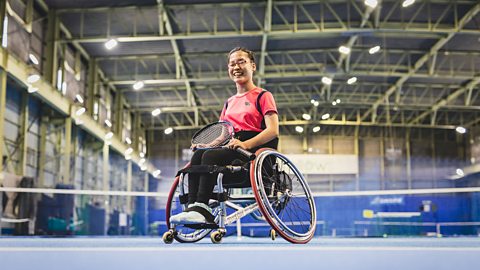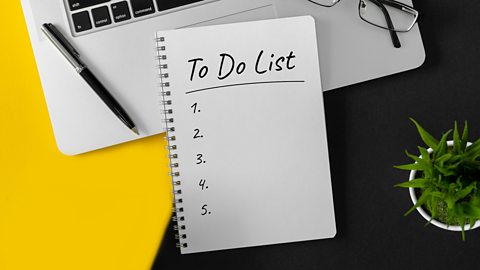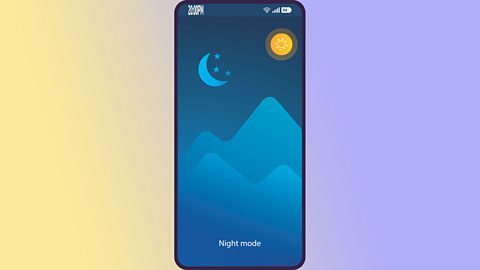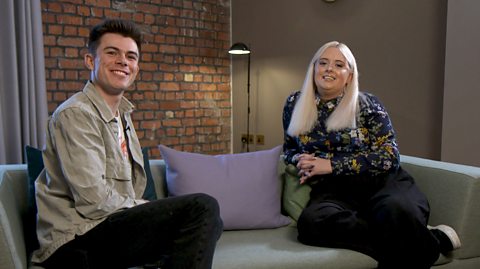This article was first published in July 2020.
We all have our own daily routines in life. Having a good routine can often help you feel more productive and a little more in control of things. But if you've fallen into some bad habits, how can you get back into a routine that feels more structured?

We've asked YouTuber, Nayna Patel, a 20–year–old student, to talk us through some of her tips for creating a good daily routine that you might actually stick to! Nayna regularly vlogs about her routines and how they help her to be more productive in her day–to–day life, so who better to help get you back to your best?
I think it’s good to have some things that are habitual in your life – no matter where you are or what you are doing they make you feel normal.


Nayna's top five tips for creating a good routine

1. Have a healthy wake up
I don't rush – sometimes I'll get up ten or fifteen minutes earlier than I need to – this bit of extra time spent preparing makes a positive difference to me during the day.
I wake up at the same time every day during the week, but I try not to be too harsh on myself with it. It's hard to differentiate between different days at the moment, so at the weekend, I have a bit of a lie in because it gives it a different feel. Here's a few things you can try to get you up and going in the morning:
- Keep your phone at a distance. Put your phone on the other side of the room so you have to get up to switch it off. I find once I'm out of bed, I'm up for the day.
- Embrace aeroplane mode. Sleep with your phone on aeroplane mode and don't turn aeroplane mode off until you've done something productive.
- Resist the morning scroll. Try to do something other than scroll through social media first thing in the morning – I like reading a book. There's a lot going on at the moment so reading the news can be a stressful way to start the day – you might be able to process it better later on in the day.



2. Build enjoyment into your routine
It's really important to set some time aside for something you enjoy – time where you can just forget about all the worries in the world.
With things you enjoy, making them part of your routine feels like less of a chore! I build exercise into my daily routine – it makes me feel more energised afterward and, at the moment, because there isn't so much to do every day, it makes me feel more accomplished and like I've achieved something.
It's all about finding what works for you. If exercise isn't your thing then don't worry, just make time for something else you enjoy. It's good if it's something that you can come back to each day and build on, like writing a short story. I've recently learned to sew – I’m not very good but I enjoy doing it, I’m improving and that’s what’s important. Plus it relaxes me and stops me checking my phone as often!



3. Make a to–do list
It’s definitely good to start your day with a small task – success leads to motivation, which leads to success – so start with something achievable.
People think that having a to–do list means only planning things that aren't as enjoyable like essays and chores, but it doesn't have to all be work. I'd recommend always scheduling in some time to do something fun too. I feel more motivated to do something if it's written on my list. Here are some tips for getting started:
- Write a to–do list each day. Find the time that works best for you – it could help you to do it just before going to sleep to clear your head or first thing in the morning over breakfast. Experiment and see what suits.
- Start small. If you can achieve some little tasks early on in the day, it gives you a boost to go on and get more done.
- Have a flexible approach If you find to–do lists aren't for you, maybe try setting reminders on your phone instead or, if you eat dinner with family or friends in the evening, talk through your aims for the following day and check in the next day to make sure you've done what you hoped to.
- Look for the bare necessities. Don't get so caught up on your list that you forget the daily essentials, like brushing your teeth or your skincare routine! It's important to not forget the basics and looks after yourself.



4. Take a break and stay hydrated
You'll head back to your desk feeling more refreshed after a screen break.
Drinking and staying hydrated can help you remain focussed and more productive, so building a regular drinks break into you day is really important, especially whilst studying at home. I feel much better if I have a drink of water. I use a reusable straw because, for some reason, I feel like I drink more water if I have a straw!
When you're writing essays or doing a project you can look at the clock and, before you know it, a few hours have flown by, especially if you’ve got a looming deadline and might be feeling stressed. Making a drink gives you five minutes out of your task to have a break, which is really important. It’s a couple of minutes to clear your mind and think about nothing in particular. You'll head back to your desk feeling more refreshed after a screen break.



5. Settle down for bed
Too much stimulation in the evening wakes you up and you need to calm down before bed.
Sometimes it can be hard to wind down and 'switch off' before bed, can't it? Here are a few ideas that I've tried to make bedtime a little easier:
- Control that phone! You could try setting your phone to automatically turn to 'night mode' at 8pm. It changes your screen from blue to orange which feels less harsh on your eyes and can help you chill out. You can also get apps to check your screen time – if it's getting a bit much, you can then set up options to have the app close or get a notification to let you know if you're spending too much time on it.
- Get your washing routine down. If showering wakes you up, maybe save it for the morning but, if like me, you find it relaxes you and helps you wind down, then it can be a great way to switch off and forget about the rest of the world.
- Control your lighting. Try turning your lights off at the same time every night, even if you aren't tired. It should help you drift off to sleep more easily and keep your morning wake up routine regular.
- Have a debrief. Try calling a loved one for half an hour before bed. I call my boyfriend Joe – it can be good to talk through your day and can be a positive and relaxing way to end the day.


You need to find out what suits you best. The whole point of a routine is to aid your life – if it's stressing you out then it's not productive for you… your routine can change and that's okay, but it's nice to have some things that you always go back to.

If you need support
You should always tell someone about the things you’re worried about. You can tell a friend, parent, guardian, teacher, or another trusted adult. If you're struggling with your mental health, going to your GP can be a good place to start to find help. Your GP can let you know what support is available to you, suggest different types of treatment and offer regular check-ups to see how you’re doing.
If you’re in need of in-the-moment support you can contact , where you can speak to a counsellor. Their lines are open 24 hours a day, 7 days a week.
There are more links to helpful organisations on ±«Óătv Action Line.

The simple trick that can help you stay motivated
Natasha Devon talks about different types of motivation.

Study Support Podcast
In this ±«Óătv Sounds Podcast Ibz Mo looks at some of the techniques you can use to help study smarter in school or at home.

Organisation hacks with Jack Edwards
Radio 1's Life Hacks presenter, Katie Thistleton, meets YouTuber, Jack Edwards, to talk all things organisation.
